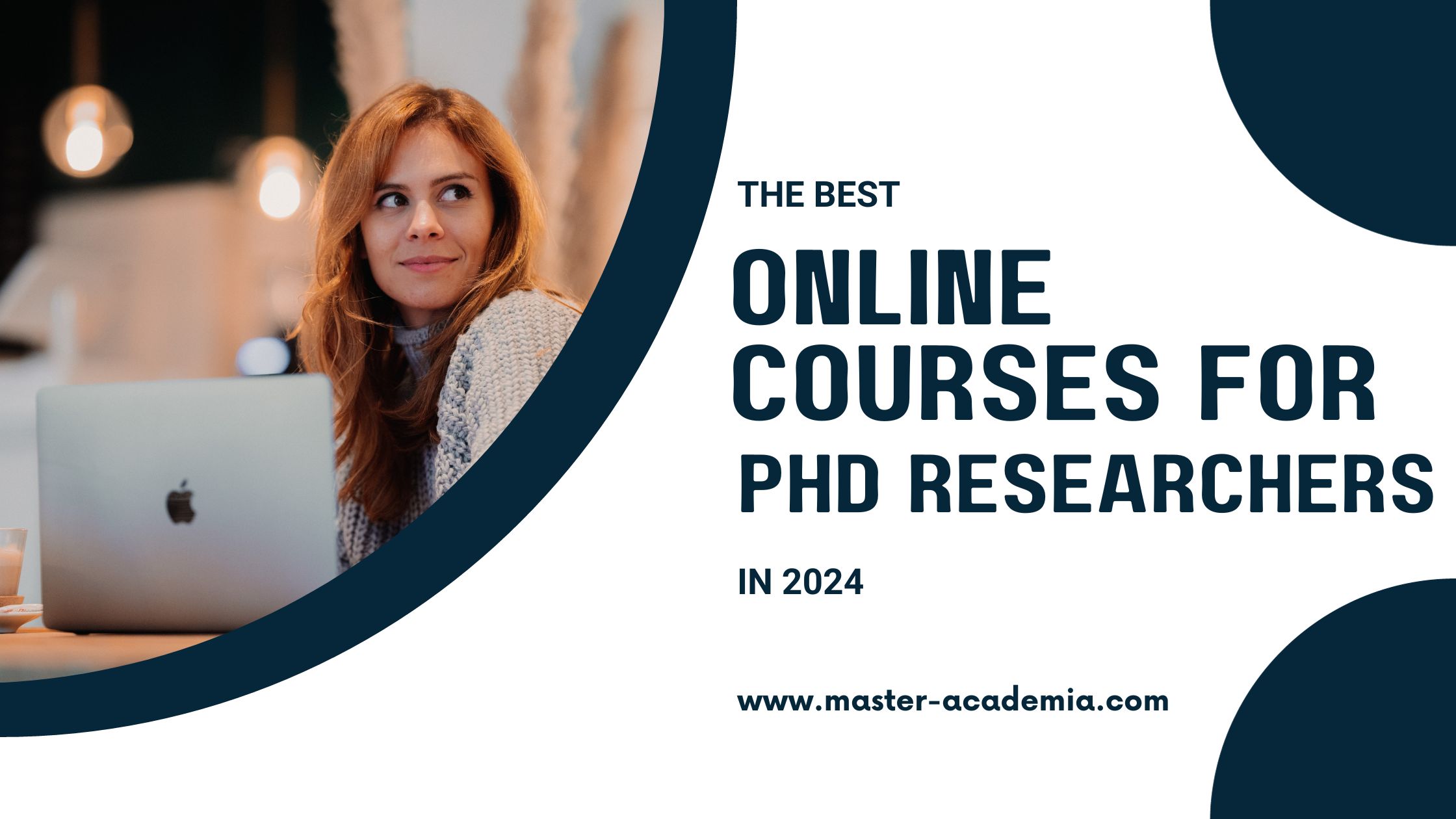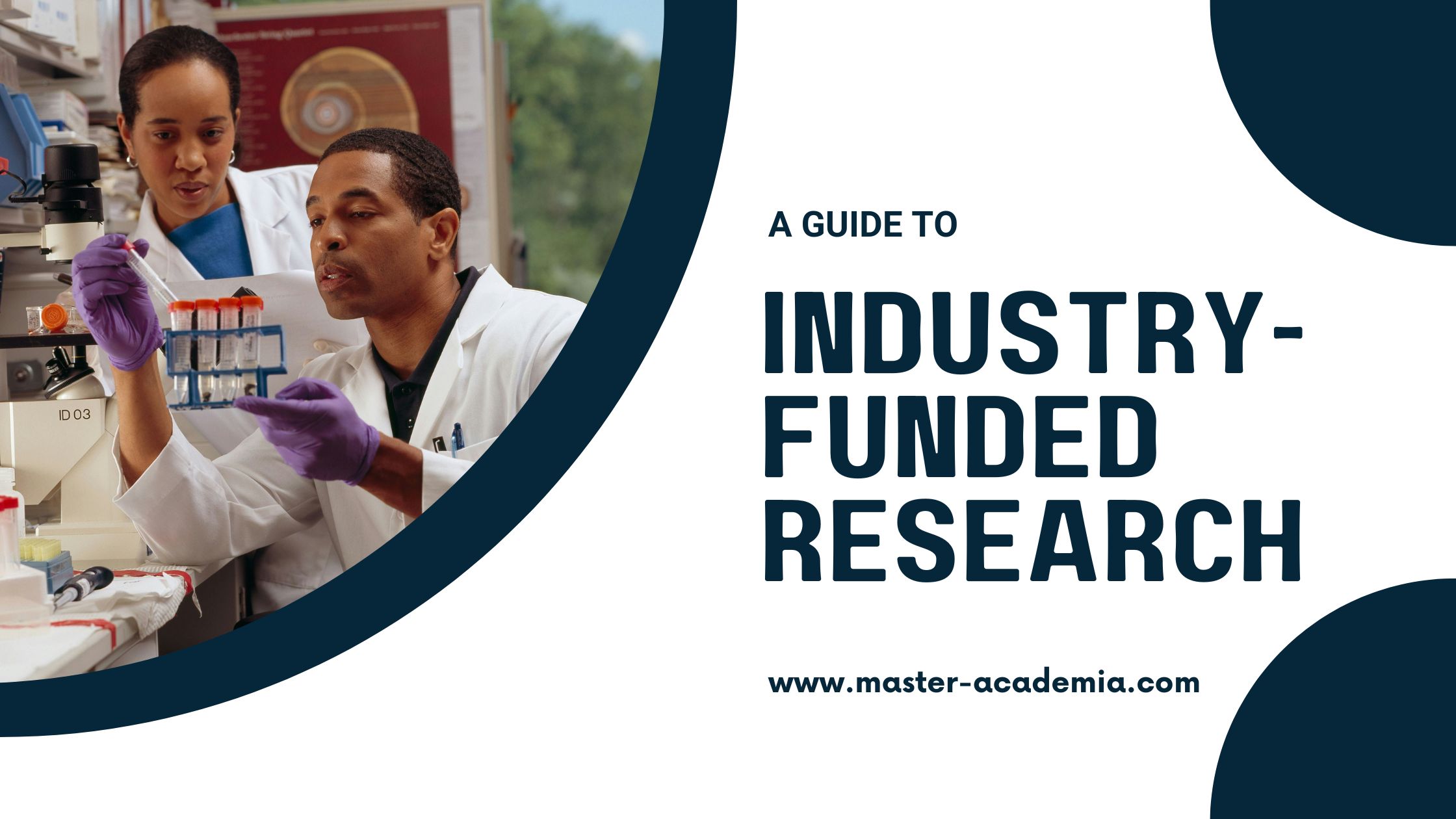
In today’s world, there are vast opportunities for education online, and carefully chosen online courses can play a significant role in the academic and personal development of PhD students. This list highlights the top 13 online courses on Coursera for PhD students in 2024, along with justifications for their relevance and utility in the context of doctoral studies.
Disclosure: This post contains affiliate links, which means I may earn a small commission if you make a purchase using the links below at no additional cost to you.
Contents
- Contrasting 2024’s top online courses for PhD researchers with last year’s picks
- Why I continue to focus on Coursera as online course platform for PhD researchers
- Online courses for PhD students on mental health and well-being
- Online courses for PhD students on academic writing
- Online courses for PhD students on Artificial Intelligence
- Online courses for PhD students on research methods and ethics
- Online courses for PhD students on productivity
- Online course for PhD students on science communication
Contrasting 2024’s top online courses for PhD researchers with last year’s picks
This is not the first year that I have provided a list of the top online courses on Coursera for PhD researchers. You can find the full list from 2023 here.
In fact, all courses from the previous year remain relevant and are included in this year’s list. However, there are also changes:
Particularly given the significant changes brought about by AI technology in the past year, the 2024 list of best online courses for PhD researchers incorporates additional courses.
Throughout 2023, I dedicated numerous blog posts to evaluating AI tools for academic writing, exploring the ethics of AI in research, addressing privacy and confidentiality concerns, and providing practical strategies for the proper use of AI in academia. As AI’s influence continues to grow, I believe a fundamental understanding of big data, artificial intelligence, and machine learning is increasingly crucial, not only for data scientists but for everyone engaged in research.
AI is also intricately linked to ongoing discussions on the responsible conduct of research. With a heightened focus on stories of academic misconduct, including bullying, authorship disputes, plagiarism, and more, I believe this area is becoming progressively important for PhD students. Therefore, this topic is also included in a course that has secured a spot on the 2024 top list.
For PhD researchers, understanding responsible conduct of research is crucial not only for proper behavior but, more importantly, to understand the norms in academia, enabling them to assert their rights.
Lastly, having observed brilliant PhD students struggle to communicate their results in my own environment, I’ve included an additional course on science communication. If you come across any other courses that you believe deserve to be featured, don’t hesitate to contact me!
Why I continue to focus on Coursera as online course platform for PhD researchers
Let’s discuss why I focus on online courses provided by Coursera. As a leading platform collaborating with universities and prominent organizations like Google and IBM, I firmly believe that Coursera stands out as the best platform for massive open online courses.
Collaborating with renowned institutions adds a layer of quality assurance for PhD researchers aiming to develop or hone theoretical and practical skills, thereby elevating their competitiveness in the (academic) job market.
Moreover, Coursera boasts a user-friendly structure, with most courses accessible for free:
The majority of online courses on Coursera are available for free, with payment required only for participation in graded assignments and to acquire an official certificate.
These certificates are necessary if you intend to showcase the course, for example, on your academic CV or LinkedIn profile as evidence of successful completion. Fortunately, they are reasonably priced, often ranging between US$30-$100.
Additionally, for dedicated online learners, Coursera offers a CourseraPlus subscription, providing full access to over 7000 online courses. Depending on your course preferences and intensity, it represents a worthwhile investment, particularly for recognized professional certificates in areas such as project management or data science.
And now, without further ado, let’s have a look at the top online courses for PhD researchers on Coursera in 2024!
Online courses for PhD students on mental health and well-being
The Science of Well-Being (Yale University)

Official description: In this course you will engage in a series of challenges designed to increase your own happiness and build more productive habits. As preparation for these tasks, Professor Laurie Santos reveals misconceptions about happiness, annoying features of the mind that lead us to think the way we do, and the research that can help us change. You will ultimately be prepared to successfully incorporate a specific wellness activity into your life.
Time commitment: approx. 19 hours
Rating: 4.9/5 (based on 37,003 ratings)
Certificate: You can earn a Certificate upon completion.
Relevance for PhD students: It is no secret that many PhD students struggle with mental health challenges such as anxiety and depression. Furthermore, many PhD students find it difficult to switch off from work and take proper breaks. Exploring misconceptions and expectations about happiness as well as learning about concrete measures to increase your well-being can be extremely useful as a PhD researcher who struggles to take care of your needs.
Build Personal Resilience (Macquarie University)

Official description: Globalisation and advances in information and communication technology have resulted in a 24/7 work environment characterised by rapid change, a greater sense of competition, and an explosion in access to communication and information. These pressures compound stress related to workload and information processing – this not only reduces performance but can lead to a reduced sense of meaning and purpose as well as physical and mental health issues. Understanding stress and how to boost your resilience to it are essential skills for contemporary leaders and play a vital role in managing the demands you face at work. This course will focus on the nature of stressors facing leaders in today’s work environments and how to deal with them. You’ll explore personal resilience – your capacity to withstand and cope with stress – and strategies for self-management, motivation and organisation. You’ll also learn how resilience is impacted by health and social relationships.
Time commitment: approx. 17 hours
Rating: 4.8/5 (based on 1,031 ratings)
Certificate: You can earn a Certificate upon completion.
Relevance for PhD students: Experiencing ‘failures’ is a normal part of academic life, but it can be particularly challenging for PhD researchers to get over setbacks and disappointments. Additionally, a PhD can be a very stressful experience as it often involves very individual and personal work, which is regularly scrutinised. Therefore, this course can help PhD researchers become more aware of their experiences and sources of stress, while it helps them to implement concrete strategies to deal with it more effectively.
You may also like: Stress levels – PhD versus non-academic full-time job
Online courses for PhD students on academic writing
Writing in the Sciences (Stanford University)

Official course description: This course teaches scientists to become more effective writers, using practical examples and exercises. Topics include: principles of good writing, tricks for writing faster and with less anxiety, the format of a scientific manuscript, peer review, grant writing, ethical issues in scientific publication, and writing for general audiences.
Time commitment: Approx. 30 hours
Rating: 4.9/5 (based on 8,199 ratings)
Certificate: You can earn a certificate upon completion.
Relevance for PhD students: The ability to master academic writing can make or break a PhD student’s career in academia. The good news is that academic writing can be learned! This course covers a wide range of topics, such as cutting clutter from writing, and using strong verbs, and sentence and paragraph structures. It also dives into the actual writing process. Highly recommended to all PhD researchers who struggle with academic writing!
Advanced Writing (University of California, Irvine)

Official course description: By raising your level of academic writing, this course helps prepare you for college-level work. After completing this course, you will be able to: plan and write a more sophisticated argument essay; identify plagiarism and explain how to prevent it; read and analyze several articles to form your own opinion on a topic; make connections between several articles; form thesis statements from your readings; use sources effectively when writing an essay.
Time commitment: Approx. 20 hours
Rating: 4.7/5 (based on 1,842 ratings)
Certificate: You can earn a certificate upon completion.
Relevance for PhD students: This course differs from the previous one by paying particular attention to using and analysing academic texts and developing your own argumentations in academic writing. The course description states that the course helps you to prepare for college-level work. However, if you are a PhD researcher who struggles to develop strong arguments in your academic writing, or if you come from a context where argumentative writing was not taught, this course is for you.
Online courses for PhD students on Artificial Intelligence
AI Fundamentals for Non-Data Scientists (University of Pennsylvania)

Official course description: In this course, you will go in-depth to discover how Machine Learning is used to handle and interpret Big Data. You will get a detailed look at the various ways and methods to create algorithms to incorporate into your business with such tools as Teachable Machine and TensorFlow. You will also learn different ML methods, Deep Learning, as well as the limitations but also how to drive accuracy and use the best training data for your algorithms. (…) By the end of this course, you will have learned different ways to code, including how to use no-code tools, understand Deep Learning, how to measure and review errors in your algorithms, and how to use Big Data to not only maintain customer privacy but also how to use this data to develop different strategies that will drive your business.
Time commitment: Approx. 7 hours
Rating: 4.8/5 (based on 238 ratings)
Certificate: You can earn a certificate upon completion.
Relevance for PhD students: The addition of this course might be unexpected, focusing on ‘business’ and ‘customers’ rather than researchers. Yet, I firmly believe this perspective is beneficial for academics. An entrepreneurial mindset is increasingly crucial in academia, and having a solid grasp of AI fundamentals is vital before applying it to your own research—an aspect often overlooked in tutorials for PhD students on AI tools for academics.
Generative AI: Prompt Engineering Basics (IBM)

Official course description: This course is designed for everyone, including professionals, executives, students, and enthusiasts interested in leveraging effective prompt engineering techniques to unlock the full potential of generative artificial intelligence (AI) tools like ChatGPT. Prompt engineering is a process to effectively guide generative AI models and control their output to produce desired results. In this course, you will learn the techniques, approaches, and best practices for writing effective prompts. You will learn about prompt techniques like zero-shot and few-shot, which can improve the reliability and quality of large language models (LLMs). You will also explore various prompt engineering approaches like Interview Pattern, Chain-of-Thought, and Tree-of-Thought, which aim at generating precise and relevant responses.
Time commitment: Approx. 7 hours
Rating: 4.8/5 (based on 57 ratings)
Certificate: You can earn a certificate upon completion.
Relevance for PhD students: Unlocking the complete potential of AI tools, such as ChatGPT, is the key! Although AI tools are gaining popularity in academia, many individuals, including PhD students, often limit themselves to the basics and overlook the full spectrum of opportunities that AI offers. Mastering prompt writing is a valuable skill. If you can dedicate some time during your PhD to acquire proper training in this aspect, I assure you that you will be grateful for the investment later on.
Online courses for PhD students on research methods and ethics
Understanding Research Methods (University of London)

Official course description: This Massive Open Online Course is about demystifying research and research methods. It will outline the fundamentals of doing research, aimed primarily, but not exclusively, at the postgraduate level. […] The course will appeal to those of you who require an understanding of research approaches and skills, and importantly an ability to deploy them in your studies or in your professional lives. In particular, this course will aid those of you who have to conduct research as part of your postgraduate studies but do not perhaps have access to research methods courses, or for those of you who feel you would like additional support for self-improvement.
Time commitment: Approx. 6 hours
Rating: 4.6/5 (based on 7,129 ratings)
Certificate: You can earn a certificate upon completion.
Relevance for PhD students: Many PhD researchers receive training on research methods as part of their PhD programme, but not all. If you need don’t have access to a course at your university but need a good overview of research methods, this 6-hour course is a good time investment! It covers aspects ranging from the development of good research questions to the point of a literature review and the importance of time planning.
Uncertainty and Research (Johns Hopkins University)

Official course description: This course teaches the fundamentals of scientific research. We approach the research process as a means of systematically reducing uncertainty and demonstrate how conducting a scientific investigation can be posed as an exercise in Bayesian uncertainty quantification. We begin by exploring the scientific landscape to understand the different types of research, where they are conducted, how they are supported, and why each of these types of research is important. We then formalize scientific inquiry and the scientific method and elaborate the research process and its scientific merits. Basic concepts in probability theory are introduced leading to a conceptually simple presentation of Bayes’ Rule. We then illustrate how Bayes’ Rule provides a mathematical framework for the research process. We place an emphasis on the role that research plays in our daily and professional lives and how research skills can help us think critically, whether you’re in a technical field or not. Exercises are designed to help you improve your research skills and think more scientifically.
Time commitment: Approx. 15 hours
Rating: 4.9/12 (based on 12 ratings)
Certificate: You can earn a certificate upon completion.
Relevance for PhD students: This course provides more in-depth knowledge of the scientific research, its different types and methods. On the one hand, it covers more fundamental questions on scientific inquiry (such as ‘What makes an investigation scientific?). On the other hand, it breaks down the actual research process into concrete steps and goes deeper into modelling uncertainties and probabilities. While this course can be very inspirational for all PhD researchers, particularly those who target quantitative studies can benefit from this course!
Responsible Conduct of Research (Utrecht University)

Official course description: As a PhD student in academia, there are difficulties you may encounter in the area of integrity, such as power relations and issues around social safety, authorship, intellectual property, and ensuring academic quality. How can you properly determine the order of authorship? In what way can social safety be improved? How do others deal with integrity issues? We have developed the MOOC “Responsible Conduct of Research” in which we take you through these topics and provide ideas on how to become a responsible researcher, who feels empowered by knowledge of integrity. 6 modules will guide you in 7 hours through important topics, including examples, a lecture, expert views and experiences and the opportunity to investigate your own research practice. A certificate will be provided to participants who completed every part.
Time commitment: Approx. 7 hours
Rating: This is a brand new course, so ratings are not available yet. However, a closer look at the modules suggests great promise!
Certificate: You can earn a certificate upon completion.
Relevance for PhD students: The course description is exceptionally clear, and it is meticulously tailored for PhD students. For doctoral researchers, a comprehensive grasp of responsible conduct of research is not only essential for ethical behavior but, more significantly, for comprehending the established norms in academia, empowering them to advocate for their rights effectively.
Online courses for PhD students on productivity
Work Smarter, Not Harder: Time Management for Personal & Professional Productivity (University of California, Irvine)

Official course description: You will be able to gain and apply your knowledge and understanding of personal and professional awareness, organization and commitment, and use the tools, methods and techniques that you have learned in goal setting, prioritization, scheduling, and delegation to overcome time management challenges and enhance productivity. Upon completing this course, you will be able to: 1. Learn to plan effectively to achieve your personal and professional goals 2. Learn to recognize and overcome barriers to successful time management 3. Identify specific time management tools and use them effectively 4. Manage resources both effectively and efficiently 5. Keep your sense of perspective to prevent and manage crises 6. Learn to delegate effectively 7. Learn to manage expectations and say “No” when appropriate.
Time commitment: Approx. 10 hours
Rating: 4.5/5 (based on 15,500 ratings)
Certificate: You can earn a certificate upon completion.
Relevance for PhD students: There are only 24 hours in the day, also for PhD students. Most of them already work very hard. Thus, learning how to work smarter instead of harder is a crucial skill for PhD researchers. Completing a PhD and fulfilling all the requirements and expectations that go along with it requires you to use your time effectively. This course is full of valuable information, including expectation management and saying “No” sometimes! (The course is part of a career success specialisation but can also be taken independently.)
Project Initiation: Starting a Successful Project (Google)

Official course description: This is the second course in the Google Project Management Certificate program. This course will show you how to set a project up for success in the first phase of the project life cycle: the project initiation phase. In exploring the key components of this phase, you’ll learn how to define and manage project goals, deliverables, scope, and success criteria. You’ll discover how to use tools and templates like stakeholder analysis grids and project charters to help you set project expectations and communicate roles and responsibilities. Current Google project managers will continue to instruct and provide you with hands-on approaches for accomplishing these tasks while showing you the best project management tools and resources for the job at hand.
Time commitment: Approx. 22 hours
Rating: 4.8/5 (based on 18,308 ratings)
Certificate: You can earn a certificate upon completion.
Relevance for PhD students: This course may come as a surprise, especially because it is provided by Google instead of a university. But think about it: Doing a PhD essentially means that the PhD researcher is the project manager who has to set up and implement a complex project! Therefore, gaining knowledge on how to successfully start a project, plan and divide it into concrete and achievable deliverables can be a complete game changer in a PhD researcher’s journey.
Online course for PhD students on science communication
Promote your Scientific Results (Institut Mines-Télécom)

Official course description: Whether you are a member of the natural or human science community, if you are a PhD student, professor, part of an academic department or international research team, or self-employed and you wish to showcase your work to a wider audience then this is the perfect course for you. You will learn how to promote your work to professional peers, the general public, as well as the media. In this MOOC, we have been incredibly fortunate to gather a team of experienced professionals from scientific experts, to media specialists, to communication coaches. (…) You will gain key takeaways that you can adapt to your own communication contexts. To further deepen your learning experience, you will collaborate with an international scientific community to reflect on and fine-tune your own skills in pitches, presentations, approach to question and answer sessions, networking, and speaking to the media.
Time commitment: Approx. 15 hours to complete
Rating: This is a brand new course, so ratings are not available yet. However, a closer look at the modules suggests great promise!
Certificate: You can earn a certificate upon completion.
Relevance for PhD students: In academia, success in building a career often hinges not solely on the brilliance or groundbreaking nature of one’s scientific work, but rather on the ability to effectively market that work. Moreover, a prevailing trend in academia places greater emphasis on assessing outreach and ‘real-world impact’ over traditional citation indexes. Consequently, securing media coverage or influencing policy processes is becoming an increasingly crucial factor for advancement within the academic hierarchy. Learning how to promote your scientific research is, therefore, a must!
Designing Effective Science Communication (University of Colorado Boulder)

Official course description: This course is designed for scientists, science educators, and science communicators who are interested in re-thinking how we communicate science to diverse audiences, particularly to the general public. Topics include evidence-based considerations of human learning as well as effective communication through a variety of modalities, including oral presentations, written forms of communication, technology, and artistic media. The objective of this course is to equip learners with the skills needed to design and implement effective methods of science communication. Learners will be able to identify key principles of human learning that undergird science communication, describe pitfalls in “popular” avenues for science outreach, and apply best practices to science communication in a variety of media.
Time commitment: Approx. 11 hours to complete
Rating: 4.5/5 (based on 24 ratings)
Certificate: You can earn a certificate upon completion.
Relevance for PhD students: Sharing and disseminating research becomes increasingly important in academia. Therefore, PhD researchers should spend some time learning effective communication strategies early on! Being familiar with processes and methods of science communication helps PhD researchers to have a larger societal impact, and it increases their employment opportunities.



